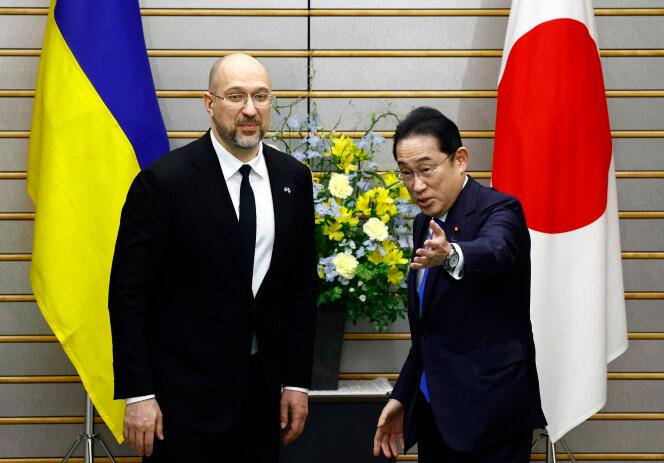


While the US Congress wrangles over a new aid package for Ukraine and concerns linger over Western support for Kyiv two years after the start of the Russian invasion, Japan is rallying its corporate sector to provide support. Japanese regulations prohibit the export of weapons but allow for economic support.
Fifty-six documents were signed on February 20 and 21, on the sidelines of the Conference for the Promotion of Economic Growth and Reconstruction of Ukraine, a bilateral meeting organized by Tokyo at the headquarters of Keidanren, Japan's powerful employers' organization. The measures announced include visa facilitation for Ukrainian nationals, the opening of a Japan External Trade Organization (JETRO) office in Kyiv and a 15.8 billion yen (€98 million) aid package for mine clearance and the energy and transport sectors.
The reconstruction of Ukraine, estimated by the World Bank at €452.8 billion over 10 years, is attracting a great deal of interest. Japan's contribution "is not only an investment in Ukraine's future but also an investment in Japan and the world," stressed Prime Minister Fumio Kishida, speaking before an audience of public and private sector representatives.
Kishida wants to see Ukraine "achieve comprehensive economic development, from the primary to the tertiary sector, in agriculture, manufacturing and information technology." "We want you all to be part of the Ukrainian economic miracle," emphasized his Ukrainian counterpart, Denys Chmyhal, who was accompanied by around 100 businessmen.
The meeting provoked a small mobilization of far-left movements, such as the Zengakuren student union, which criticized it as a "conference for war." However, this opposition did not disrupt the discussions, which confirmed Japan's commitment to supporting Ukraine since the start of the conflict. In addition to sanctions against Russia, Tokyo has provided non-lethal military equipment, helmets, body armor and around 100 vehicles. Japan has opened up to Ukrainian refugees by relaxing the rules governing their right to asylum.
In March 2023, Kishida paid a visit to Kyiv. It was there that the idea of a Tokyo conference was born. Subsequently, the Japanese Prime Minister welcomed Zelensky to the G7 summit in Hiroshima (southwest) in May 2023. In December, Tokyo announced a new €4.2 billion aid package for Ukraine, bringing total Japanese aid since the start of the conflict to €11.2 billion.
Japanese companies had little presence in Ukraine before the conflict, apart from trading firms. Since the Russian offensive, with encouragement from the government, several companies have become active in new technologies, agriculture and infrastructure. Telecommunications giant Rakuten is to develop an Open RAN network, enabling operators to access open systems from different suppliers. Komaihaltec, which specializes in renewable energies, plans to cooperate in wind power with Ukrainian gas company Naftogaz. IHI wants to build bridges and Nippon Koei is targeting rail infrastructures.
You have 21.14% of this article left to read. The rest is for subscribers only.
